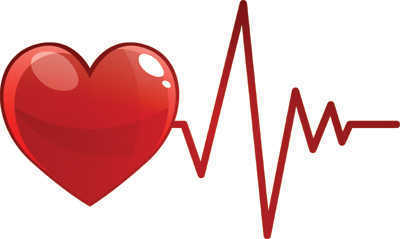
The study, published in the European Heart Journal, looked at more than 27,000 heart attack patients between 1987 and 2014.
BERLIN
There has been an increase in heat-induced heart attack risk between 2001 and 2014, a study analysing data over a period of 28 years has found.
The study, published in the European Heart Journal, looked at more than 27,000 heart attack patients between 1987 and 2014.
The average age of the patients studied was around 63 and 73 per cent were men. About 13,000 heart attacks ended in the death of the patient.
The individual heart attacks were compared with meteorological data on the day of the attack and adjusted for a range of additional factors, such as the day of the week and socioeconomic status.
"Over a period of 28 years, we found that there has been an increase in heat-induced heart attack risk in recent years," said Kai Chen, a researcher at Helmholtz Zentrum Munchen in Germany.
The researchers compared data from 1987 to 2000 with data from 2001 to 2014.
"Our analysis showed that, over the last few years, the risk of heat-induced heart attack with increasing average daily temperature has risen compared to the previous investigation period," Chen said in a statement.
Individuals with diabetes or hyperlipidaemia—a condition in which there are high levels of fat particles (lipids) in the blood—were particularly at risk.
The researchers suspect that this is partly a result of global warming, but that it is also a consequence of an increase in risk factors such as diabetes and hyperlipidaemia, which have made the population more susceptible to heat.
"Our study suggests that greater consideration should be given to high temperatures as a potential trigger for heart attacks—especially in view of climate change," said lead researcher Alexandra Schneider.
"Extreme weather events, like the 2018 heat waves in Europe, could in future result in an increase in cardiovascular disease," Schneider said.
"Our analysis suggests a lower risk in the future, but this lower risk was not significant and very cold days will continue to represent a potential trigger for heart attacks," he said.
To what extent increases in heat-related heart attacks will be counterbalanced by a decrease in cold-related heart attacks is not yet clear, researchers said.
The team is currently performing extrapolations aimed at modelling this change in risk both in scenarios where the world meets the Paris Agreement target to restrict average temperature increase between 1.5 degrees Celsius and 2 degrees Celsius and in scenarios where these targets are missed. — PTI



























